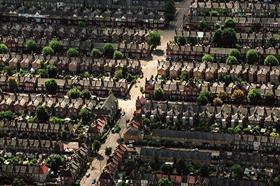Generation rent is here to stay a report from PwC says, predicting that a quarter of UK households will be renting privately by 2025

Increasing house prices and a shortage of social housing has seen the number of privately-rented households double since 2001, according to a report from Pricewaterhouse Coopers (PwC).
Renting is now the “norm” for the under-60s as homes become less affordable and deposits for mortgages for first time buyers increase - from £10,000 in the late 1990s to nearly £50,000 today - far exceeding the growth in earnings.
The number of households in the PRS rose from 2.3 million to 5.4 million by 2014, from 10% to 20%, and PWC predicts that ‘Generation Rent’ is here to stay, with nearly half of 20-39 year olds already renting, and projecting an additional 1.8 million households will become private renters by 2025 – taking it to almost one in four of the UK total.
Richard Snook, senior economist at PwC said: “Driven by a decade of soaring house prices pre-crisis and lower loan-to-value ratios post-crisis, the deposits needed by first time buyers have risen significantly. As a result, a generation of private renters have emerged and this will increasingly be the norm for the 20-39 age group.”
The housing market cooled over 2014 with house prices only ending 10% higher than at the beginning of the year, but PWC still projects that house prices could rise by 5% over the course of 2015.
John Hawksworth, chief economist at PwC said: “UK house price growth has moderated since last summer, particularly in London. But persistent lack of supply means that medium-term UK house price growth is projected by PwC to average just over 5% per annum over the period to 2020. This implies that the average residential property in the UK could be worth around £279,000 in 2015, rising to around £360,000 by 2020.”
Furthermore, the proportion of households with a mortgage has fallen from almost 45% to under 30%, from around 10 million in 2001 to around 8 million in 2014, the report said. This is due to a lack of mortgage availability as well as affordability making it harder for first time buyers to get on the housing ladder.
It is predicted that this decline will continue resulting in only 7.2 million households having a mortgage by 2025.



























No comments yet